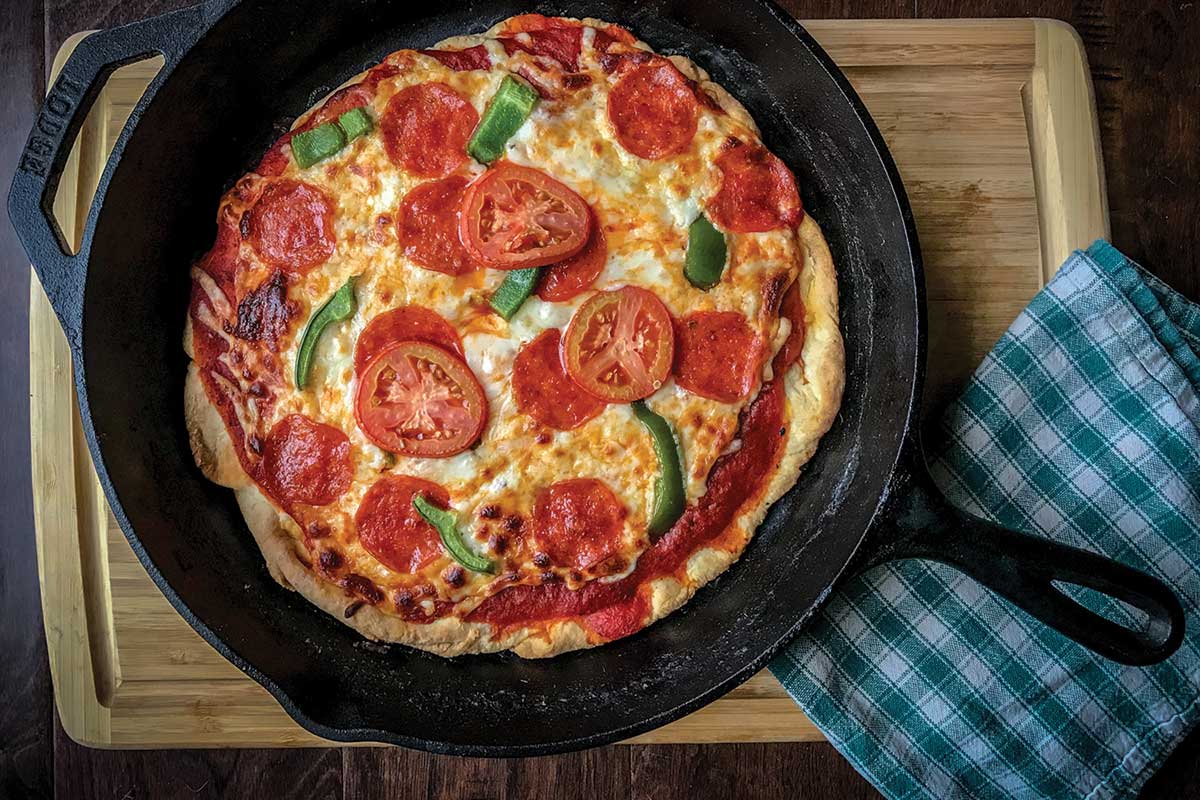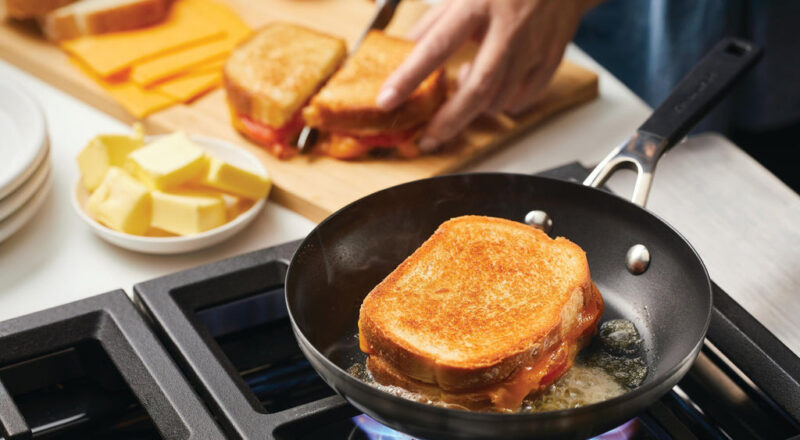Cast iron skillets have been a beloved kitchen tool for generations. Their durability and ability to retain heat make them perfect for a variety of cooking tasks. However, if not properly cared for, even the best cast iron skillet can lose its effectiveness. This is why knowing how to deep clean a cast iron skillet is crucial.
A deep clean ensures that your skillet remains in optimal condition, free from rust, sticky residue, and lingering food flavors. This keeps your food tasting fresh and your skillet functioning at its best.

Materials Needed for Deep Cleaning
- Coarse salt
- Vegetable oil or baking soda
- Heat-resistant gloves
- Stiff brush or sponge
- Paper towels
- Water
Step-by-Step Guide to Deep Cleaning
Step 1: Remove Residue
Start by scrubbing the skillet with coarse salt and a small amount of water. This abrasive mixture will help remove stuck-on food residue.
Step 2: Rinse and Dry
Rinse the skillet with warm water and dry it thoroughly with paper towels. Ensuring it is completely dry is crucial to prevent rusting.
Step 3: Remove Rust
If there is rust, sprinkle baking soda onto the rusted areas and scrub with a brush. For extensive rust, you may need to use a bit more baking soda and some elbow grease.
Step 4: Seasoning
Once your skillet is clean, apply a thin layer of vegetable oil to the interior and exterior. Place it in a preheated oven at 350F for an hour to season it.

Maintaining Your Cast Iron Skillet
Regular Cleaning Tips
To avoid needing to deep clean often, you should regularly clean your skillet. After each use, rinse it with warm water, dry thoroughly, and apply a very thin layer of vegetable oil.
Avoiding Common Mistakes
Avoid using soap or soaking your skillet for long periods. These actions can remove the seasoning and cause rust.

FAQs
How often should I deep clean my cast iron skillet?
It depends on how often you use it. For frequent use, deep cleaning monthly should suffice. If used less often, every few months may work.
Can I use dish soap on my cast iron skillet?
While occasional use of dish soap won’t ruin your skillet, it’s best to avoid it to maintain the skillet’s seasoning.
What if my skillet develops a sticky residue?
This usually means it needs a deep clean and re-seasoning. Follow the steps outlined above to resolve this issue.
Related Links
chicken thigh, Dutch oven, easy skillet, bread recipe
As an Amazon Associate, I earn from qualifying purchases.

